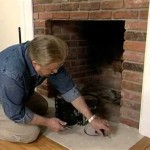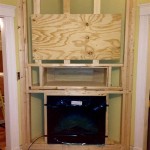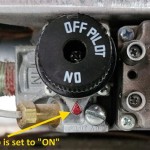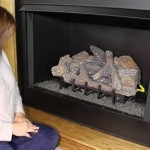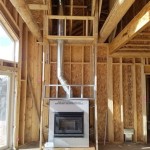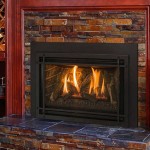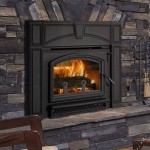Gas Fireplace Sets Off Fire Alarm: Understanding the Cause and Prevention
A gas fireplace, designed to bring warmth and ambiance to a home, can sometimes become a source of unintended alarm. The unexpected activation of a fire alarm triggered by a gas fireplace can be a cause for concern. Understanding the reasons behind this phenomenon is crucial to ensure both safety and peace of mind. This article will delve into the common causes of gas fireplace-induced fire alarm activation, explain the underlying mechanics, and provide practical steps for preventing future occurrences.
1. Combustion Byproducts and Smoke Detectors
One primary culprit behind fire alarm activation is the production of combustion byproducts during the burning of gas. Gas fireplaces, like most combustion appliances, generate trace amounts of smoke, carbon monoxide, and other gases. These byproducts, although often negligible, can be detected by sensitive smoke detectors, particularly those designed to detect both smoke and carbon monoxide.
Modern smoke detectors utilize various technologies to detect the presence of smoke and carbon monoxide. Photoelectric detectors, for instance, employ a beam of light that is scattered by particles in the air. When these particles reach a certain concentration, the detector triggers an alarm. Ionization detectors, on the other hand, rely on the principle of ionization, where the presence of smoke particles disrupts the flow of electricity between two electrodes, causing the alarm to activate.
While these detectors are essential for safety, their sensitivity can sometimes lead to false alarms, particularly in situations where small amounts of smoke or gases are present. This sensitivity is particularly relevant in the context of gas fireplaces, where the combustion process, even when properly functioning, can produce minute amounts of byproducts that might trigger the alarm.
2. Improper Ventilation and Air Circulation
Proper ventilation is a critical element in ensuring the safe and efficient operation of any gas appliance, including fireplaces. Insufficient ventilation can result in a buildup of combustion byproducts, increasing the likelihood of triggering a fire alarm.
Gas fireplaces rely on a continuous flow of fresh air for combustion. This air is typically drawn in from the surrounding environment through vents or openings specifically designed for this purpose. The byproducts of combustion are then vented out through a separate exhaust system.
When the ventilation system is compromised, whether due to blocked vents, poor airflow, or inadequate design, combustion byproducts can accumulate in the room where the fireplace is located. This buildup can trigger smoke detectors, leading to a false alarm.
3. Unintentional Release of Gas
In rare instances, a gas fireplace can release a small amount of unburnt gas into the surrounding environment. While this occurrence is usually a result of a malfunctioning component, it can trigger the fire alarm due to the presence of combustible gas.
The most common cause of gas leaks is a faulty gas valve or a crack in the gas line. If a gas valve fails to shut off completely, or if a leak develops in the gas line, unburnt gas can escape into the room, potentially setting off the fire alarm.
Gas leaks are a serious safety concern and should be addressed immediately. The characteristic odour of natural gas can be a warning sign, but it is crucial to rely on a gas leak detector for confirmation and to contact a qualified gas appliance technician for repairs.
4. Dust Accumulation and Maintenance Neglect
The accumulation of dust and debris within a gas fireplace can contribute to the production of smoke and other byproducts during combustion, increasing the risk of triggering a fire alarm.
Gas fireplaces require regular maintenance to ensure optimal performance and safety. This maintenance includes cleaning the interior of the fireplace, removing any accumulated dust, and inspecting the various components for signs of wear or damage.
Neglecting these maintenance tasks can lead to a buildup of dust and debris, which can interfere with the combustion process, resulting in the production of excessive smoke and byproducts. Regular cleaning and maintenance are essential to minimize the risk of false alarms.

Reasons Why Your Alarm Is Switching Off Randomly

Can Gas Fireplaces Lead To Carbon Monoxide Poisoning

Will Burning An Incense Stick Set Off A Smoke Detector Quora

What Would Set Off A Carbon Monoxide Detector Heartland Heating Air
Why Is Steam From The Shower Suddenly Setting Off My Smoke Detector Quora

How To Turn On And Off A Gas Fireplace Line Pilot Light

My Smoke Alarm Is Chiming What Does It Mean The Longmont Leader

Smoke Detector Repair Services In Atlanta Ga

A 2024 Smoke Alarm How To Guide

Pleasant Hearth Universal Circulating Zero Clearance 42 In Ventless Dual Fuel Fireplace Insert Phzc42c The Home Depot
Related Posts

